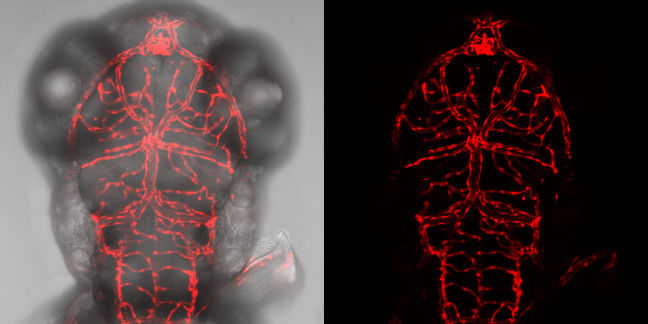ISU researchers receive $2.98 million grant
Researchers can activate fluorescent genes in zebrafish to cause certain tissues to glow, an indication their gene editing techniques are working as planned.
August 29, 2017
Iowa State researchers were awarded a four year, $2.98 million grant Tuesday from the National Institutes of Health.
The research will work to develop innovative technology to search the genome of zebrafish for genes leading to advances in human health.
By identifying specific genes related to disease and switching them off and on, the researchers hope their findings could lead to new treatments for health issues such as cancer, vascular disease and neurological disorders.
“We need to determine if a gene is curative,” said Jeff Essner, professor of genetics, development and cell biology and research team member. “We’re hoping to develop a toolbox that will allow us to identify genes in zebrafish, and ultimately in humans, that can be targeted with therapy to cure various ailments.”
Zebrafish are small, freshwater fish. Zebrafish are ideal for this kind of genetics work because their embryos are fertilized outside the body of the mother.
The embryos are also transparent, making them easy for scientists to collect and target with the gene-editing technology.
Zebrafish share many genes with humans which lead to disease, said Maura McGrail, professor of genetics, development and cell biology and another research team member.
The researchers can activate fluorescent genes in the zebrafish to cause certain tissues to glow.
Essner said this effect allows the researchers a direct way to confirm the gene-editing technology is working as they intend.
The team will also include Drena Dobbs, a university professor of genetics, development and cell biology. They will also work with Karl Clark and Stephen Ekker at the Mayo Clinic in Rochester, Minnesota, who are conducting similar gene editing research in cultured human cells.
















